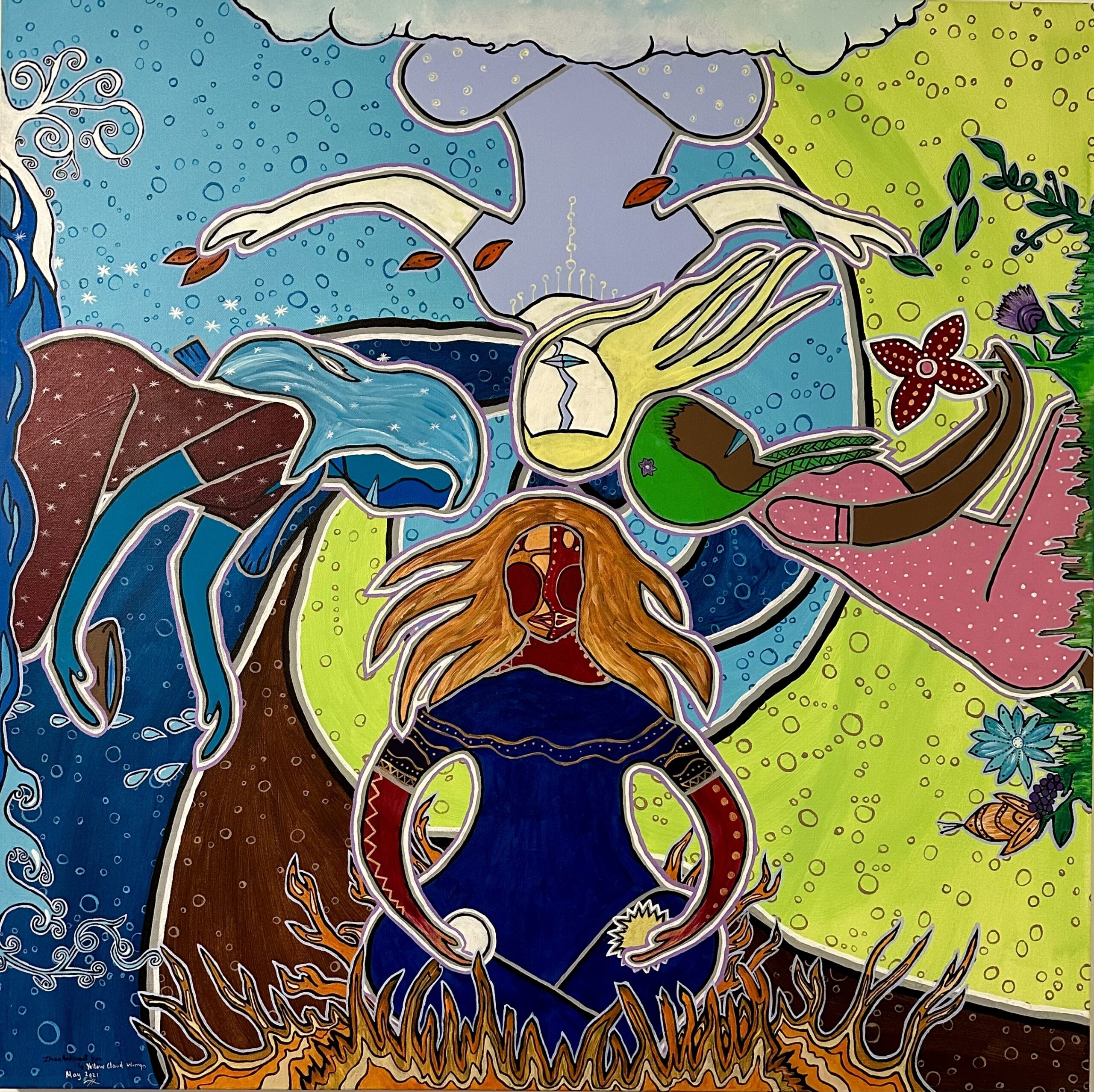Niigani Miinigowiziiwin Accelerator Program
(We Give These Gifts to the Future)
About The Program
The Niiganii Miinigowiziiwin (We Give These Gifts to the Future) Accelerator Program is a transformative, collective learning journey to support CASC Members as they grow relationships with local Indigenous communities and engage more deeply with Indigenous Knowledge Systems.
Based on transformative systems change practices, this program is designed for CASC members who are somewhere along their journey of strengthening relationships with local Indigenous communities and have started down the path of braiding Indigenous wisdom into their operations, outreach and education initiatives.
CASC Members can be anywhere along their journey. This accelerator is about meeting you where you’re at and moving you further down the path of strengthening relationships with Indigenous communities, and weaving Indigenous knowledge into your organizations function.
This first-of-its-kind program will be facilitated by Systems Changer in Residence and world-renowned Indigenous Systems Scholar Dr. Melanie Goodchild, Vice President of Indigenous Knowledge, Scholarship and Research at Shingwauk Kinoomaage Gamig and Founder of the Shingwauk Indigenous Knowledge Systems Lab, in partnership with the globally-recognized Presencing Institute and systems change leaders at Wolf Willow Institute. Upon completion of the Accelerator Program, participants will be granted a micro credential from Shingwauk Kinoomaage Gamig.
The Niigani Miinigowiziiwin Accelerator Program is designed for teams of 3-5 people from CASC Member Organizations who participate in the learning journey together. Selection for participation in the program includes organizational readiness, participant willingness to engage in a unique learning process, can commit to time requirements, and genuine interest in expanding on the work you’ve started.
It is anticipated that 7-10 CASC Member Organizations will participate.
Program Timeline
The full program timeline is being established as the program design continues. We will update this information on a regular basis.
CASC member survey + Application: April 2025
Program invitations: Fall 2025
Co-initiating/online meetings with individual participants: Fall/Winter 2025
Full group kick-off meeting (online): February 2026
In-person gathering: April 2026
Monthly meetings (online): Ongoing from 2026 – 2029
Wrap-Up Capstone Project: April 2028 – March 2029
(Final schedule is TBD. Meetings will not take place in March, June, July, August and December)
Program details
- The program will include grant funding to support a capstone project.
- Niiganii Miinigowiziiwin is a multi-year (approx. 36 months) program that explores how we nurture right relations and invite an Indigenous world view from the periphery to the core of how we operate.
- Select CASC members will be invited to participate in this accelerator program. Invitations will be sent in November 2025. Participants who complete the program will be granted a micro credential from Shingwauk Kinoomaage Gamig (SKG).
- Each participating CASC Member Organization will be required to include 3-5 staff people from various levels of the organization in the program cohort, including a senior leader/decision maker, community outreach/programmer, communications and marketing staff and Indigenous staff where possible.
- The program will kick off with an online gathering in February 2026.
- The program will include an in-person gathering in Baawaating (Sault Ste. Marie) ON, ahead of the 2026 CASC Conference in April. Financial support for travel and accommodations will be provided.
- The program will include mandatory online community gatherings (approximately 1 per month except for March, June, July, August and December)
- Course materials will be provided asynchronously through a free online learning platform.
Partner information
This first-of-its-kind program is designed and facilitated by Systems Changer in Residence and world-renowned Indigenous Systems Scholar Dr. Melanie Goodchild, in partnership with the Shingwauk Indigenous Knowledge Systems Lab, the globally-recognized Presencing Institute and systems change leaders at Wolf Willow Institute.
Wolf Willow Institute
Born in a pandemic and fueled by a resolute sense of optimism and necessity, Wolf Willow Institute is a community of systems educators, practitioners, guides, activists and artists that exists to serve those dedicated to building a flourishing future for all. They do this by cultivating the systems leadership capacities needed to affect social change in a complex world through education, research and community-building.
Presencing Institute
The Presencing Institute is a global action research organization advancing the field of awareness-based systems change by generating conceptual frameworks, innovation tools and change practices to help change-makers lead from the emerging future. The work of the institute is based on Theory U, an approach to systems transformation at the intersection of systems science, collective action, and consciousness. Working across sectors and geographies, the Presencing Institute is a global ecosystem of regional partners in Africa, Asia Pacific, Europe, and the Americas working toward deep systems innovation and transformation through capacity-building, innovation labs and research & knowledge creation.
About the Team
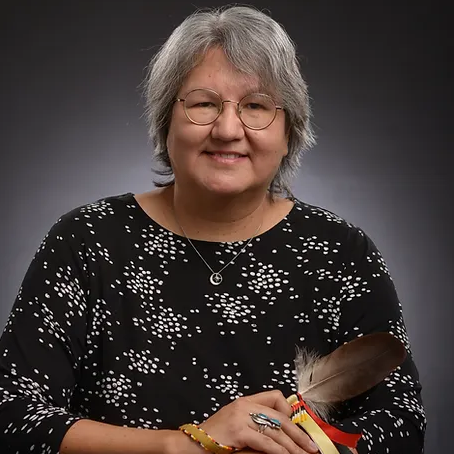
Dr. Melanie Goodchild
Dr. Melanie Goodchild, moose clan, is an Anishinaabekwe (Ojibway woman) from Biigtigong Nishnaabeg First Nation and Ketegaunseebee (Garden River) First Nation. She is a systems thinking and complexity scholar who offers a uniquely Anishinaabe approach to making sense of society’s most entrenched problems.
Dr. Goodchild is Vice President Indigenous Knowledge, Scholarship and Research at Shingwauk Kinoomaage Gamig, an Indigenous post-secondary institute located in Baawaating (place of the rapids), within the traditional territory of the Three Fires Confederacy.

Julian Norris
Julian Norris, PhD, is a scholar-practitioner and wilderness guide, and founding director of the Wolf Willow Institute who has spent his life exploring the crossroads where human development and systems transformation meet. Originally trained as an anthropologist, he is a faculty member at the Haskayne School of Business where he teaches courses in leadership and complexity. Julian’s work is seasoned by a love for the bardic traditions, a lifetime spent in wild landscapes and a long-standing practice of contemplative and somatic disciplines. His past roles include Director of Systems Leadership at Banff Centre and Associate Director for Outward Bound Canada and he is a coach-advisor for senior leaders and organizations in the government, corporate and social sectors grappling with complex challenges and opportunities.
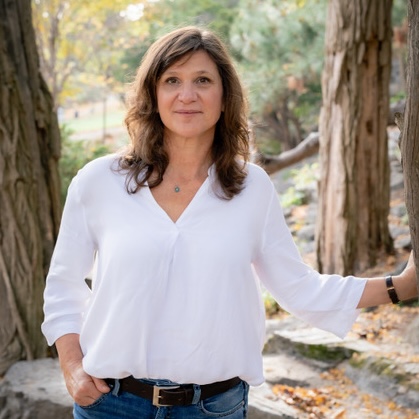
Eva Pomeroy
Eva Pomeroy is Research Lead and Senior Faculty at the Presencing Institute, an awareness-based action research organization at the intersection of science, consciousness, and profound social and organizational change. She is Affiliate Faculty in the Department of Applied Human Sciences, Concordia University, Montreal, Canada and core faculty for MITx Online’s u-lab: Leading from the Emerging Future, an online-to-offline transformative change program based on Otto Scharmer’s Theory U. Eva is Co-Founder and Managing Editor of the Journal of Awareness-Based Systems Change, whose research focuses on expanded epistemologies and social field approaches to transformative learning and systems change. She has published in journals such as the International Journal of Lifelong Education, Journal of Transformative Education, OD Review and Journal of Applied Behavioural Sciences. Eva lives in Montreal/Tiohtià:ke with her husband and two sons.

Vanessa Reid
Vanessa Reid is an architect of cultural evolution who works at the intersection between systems and soul. She co-founded the Living Wholeness Institute which works around the world to co-create cultures and communities of practice dedicated to systems transformation amidst complexity, collapse and chaos. Vanessa has Masters degrees in both architecture and process-oriented psychology and brings her depth of practice and wild perspective to her work with the Wolf Willow Institute for Systems Learning and the Trailblazery’s Hedge School, lauded for its ‘exploration of the possible.’ She is the former executive director of Santropol Roulant and publisher of ascent magazine. A translocal practice leader, Vanessa has a particular call to work with transitions, transformation and the natural cycles of life – from the mess and excitement of creating new systems and initiatives to Conscious Closure and the Wild life of Dying.
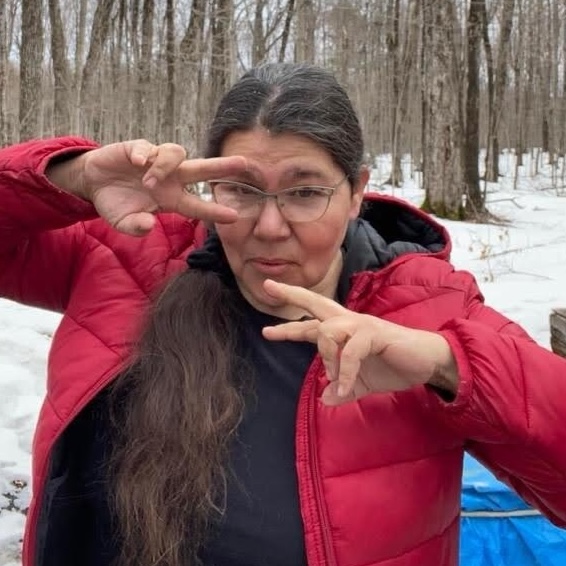
Carianne Agawa
Booshoo (hello). Zhaa Ankwad Kwe dzhinikaaz minaawa Carrianne Agawa. MichigeN n’doodem. Wiigwaaskiniga n’doonjiba. Anishinaabe Kwe minaawa Windigokaan n’daaw.
Yellow Cloud Womyn is my spirit name and Carrianne Agawa is my given one. My clan is the turtle and I come from the land of the birch trees, but this is also known as Whitefish River First Nation (WRFN). I am an Ojibwe womyn and a Windigokaan (contrary). My father, Paul Jacko (ba) was an Ojibwe from WRFN, and my mom Heather (ba) was English, German and wee bit of Iroquois (one of her grandmothers was Iroquois). I grew up on the land and maintain a strong relationship with it; land grounds me and will always remind me of who I am.
With a Master’s in Education, an Honors degree in Psychology, along with many other certificates and life experiences, I skillfully infuse Indigenous and Western knowledge in the work I do and love as a consultant, an artist, an art therapist student, a writer, and a storyteller.
My passions involve running half and full marathons, sewing, and kayaking which keep me grounded in all that I do.
Learning Journey FAQs
In this context, accelerator refers to building on work that’s already begun. This program is for CASC members who are already somewhere along their journey of strengthening relationships with local Indigenous communities and have started down the path of braiding Indigenous wisdom into their operations, outreach and education initiatives. CASC Members can be anywhere along your journey. Through experiential learning, mentorship, and a vibrant peer learning community, you will be supported to grow your inner and outer resources needed to take your work in this area to its next evolution.
Nigani Miinigowiziiwin means We Give These Gifts to the Future. It is the story of how our ancestors walk with us during our apprenticeship with complexity by Dr. Melanie Goodchild. To read or listen to Melanie’s story, scroll down on her homepage here.
CASC Members invited to the accelerator can be anywhere along your journey. This accelerator is about meeting you where you’re at and moving you further down the path of strengthening relationships with Indigenous communities, and weaving Indigenous knowledge into your organizations function. Teams of 3-5 people will then be invited to join the accelerator based on:
- organizational readiness
- collective willingness to engage in a unique learning process
- availability for the entire journey
- genuine interest in expanding on the work you’ve started
The program will include grant funding to support a capstone project. As well, any costs associated with travel and accommodations for in person gathering will be provided.
We expect 7-10 CASC member organizations to be selected to participate in the program. Each selected member organization will be asked to include 3-5 staff in their cohort, depending on the size of their organization. We imagine a cohort of approximately 35 participants.
This learning journey will wrap up in 2029. We are confident that after our time together, you will have deepened your understanding of Indigenous wisdom and strengthened relationships with local Indigenous communities. In addition, you will have forged supportive relationships and cross-connections to other organizations and individuals within the CASC Membership committed, as you are, to braiding Indigenous Knowledge into your operations, outreach and educational initiatives. We anticipate that these connections will continue and grow beyond the timeline of the Accelerator.
This first-of-its-kind program will be facilitated by Systems Changer in Residence and world-renowned Indigenous Systems Scholar Dr. Melanie Goodchild, in partnership with the globally-recognized Presencing Institute and systems change leaders at the Wolf Willow Institute for Systems Learning.
This program is designed with a combination of in-person and virtual gatherings.
It will include mandatory online community gatherings (approximately 1 per month except for March, June, July, August and December), as well as asynchronous online learning content.
It will also include an in-person gathering in Baawaating (Sault Ste. Marie) ON, ahead of the 2026 CASC Conference in April. There may be additional in person gathering as the program progresses. Financial support for travel and accommodations will be provided.
In its essence, changing systems is about shifting the quality of relationships within and around any given system. The practices in the Niigani Miinigoziiwin Accelerator are designed to help teams connect to purpose, clarify their shared intention and to see and sense themselves as a system. Drawing from multi-model learning methods, including dialogue and embodied practices, and engaging in inner exploration as well as outward action, all within the context of a safe learning space, fosters a deeper quality of relationship amongst all involved. This relational fabric then becomes the foundation from which next steps are planned and implemented. for forging relationships across the ecosystem of the organization.
Niigani Miinigoziiwin is a unique approach to systems learning, guided by the framework of Relational Systems Thinking (Goodchild, 2021, 2022). It integrates complexity science, systems ecology, and Anishinaabe gikendaasowin (our original ways of knowing), with multiple modes of learning to catalyze multiple ways of knowing.
This is not a passive learning experience. It is a call to action to reimagine our systems, practices, and beliefs about how CASC members engage with Indigenous communities and Indigenous Knowledge Systems. Stepping into this work of meeting and co-shaping the emerging future requires a broadly integrated learning approach; it includes an inward and outward lens, and exploring our own mental models and frames that give rise to particular ways of interacting, organizing and doing. Through dialogue, stories, practices and reflection this journey invites us to shed light on and grow what is already happening in the field, and create the opportunity for new things to emerge that were previously not possible or in our purview.
Invitations will be sent in Fall 2025. Following acceptance of your invitation, CASC, along with our program partners, will arrange a brief co-initiating call with each participating organization. We will kick off the program with a group call in February 2026.
A micro-credential offers certification that can be used in professional profiles and CVs to showcase professional development in a specific domain of work. They are a “coherent learning experience” focused on one area of skill or competency, that allows learners to build their skill in the focus area in a concentrated and targeted way.
Each individual team member is expected to attend the mandatory monthly online community gatherings. These gatherings will be 2 hours in length. We will not meet in March, June, July, August and December.
The total amount of time each member of the learning journey should set aside per month is the equivalent of 6 hours.
The Learning Journey includes mandatory monthly online community gatherings. These gatherings will be 2 hours in length. We will not meet in March, June, July, August and December.
The exact dates of these meetings are being planned as we speak. An updated schedule will be shared once confirmed.
Online gatherings will be 2 hours in length.
The Learning Journey includes mandatory monthly online community gatherings. These will take place via Zoom.
There will be in person gatherings, hopefully once per year. There will be travel required for these meetings.
Any costs associated with travel and accommodations for in person gathering will be provided.
Yes, the members of the Learning Journey team will be available for support throughout the program. As well, the mandatory monthly gatherings will act as a community of practice to support you along your journey.
Yes! While the content for the learning journey is still in development, we suggest that an additional 4-5 hours per month be set aside for asynchronous individual and group work. This work may need to be submitted and/or shared back with the group.
The Capstone project is a mandatory component of the program and must take into consideration the teachings from the Learning Journey. While theCapstone requirements are still in development, we see a range of possibilities for this Project: it could include an audit and overhaul of an existing program, initiating a new program and/or developing a process for community engagement, creating new processes for building meaningful relationships and partnerships, or innovations in exhibit collaborations.
Yes, the expectation will be that the Capstone Project will be completed as an organization/team.
The Learning Journey facilitation team will be available for support through regular “office hours” held online. As well, the mandatory monthly gatherings will act as a community of practice to support you along your journey.
We will have some preparation suggestions for participants once the cohort is selected (November) which we will invite you to complete before our first gathering.
During the course of the Learning Journey, we will expect the total amount of time each participant should set aside per month is the equivalent of 6 hours. This time will be allocated to monthly online gatherings, team/homework as required, and support/coaching circles.
Yes, if your application is approved, 2 staff people will be sufficient.
As we try to accommodate as many participants as possible, we will cap the number of participants at 5 if you are a large CASC member organization. That being said, we do hope that your organization’s Learning Journey cohort will act as a lever for change, and part of the learning journey (or program content) involves reaching out to the broader organization and engaging them in the learning process
Yes, the Learning Journey will include a very supportive environment where participants can share openly and learn from one another.
The Capstone requirements are still in development, but several possibilities are being considered including an audit and overhaul of an existing program, initiating a new program and/or developing a process for community engagement. The Capstone project is a mandatory component of the program and must take into consideration the teachings from the Learning Journey.
Yes, we hope that this journey will deepen your relationship with local Indigenous communities, including host Nations.
Yes, we hope that this journey will deepen your relationship with local Indigenous communities, including host nations. The learning journey team will be available to support you throughout the program.

